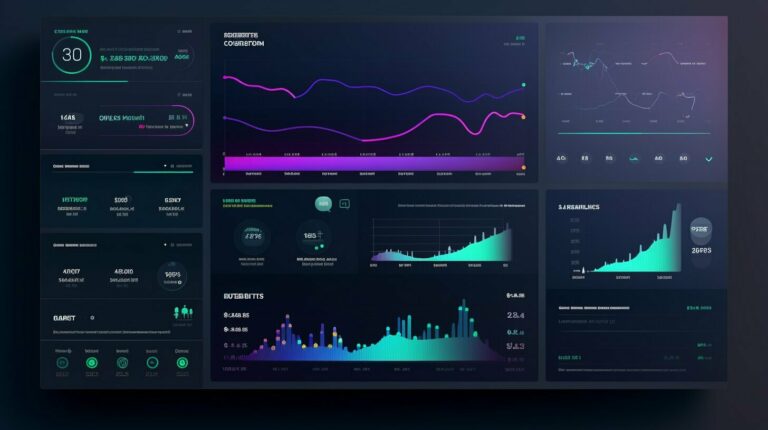Node.js has become a popular choice for server-side development due to its efficiency and versatility. One of the key features that make Node.js so powerful is middleware. In this article, we will explore Node.js middleware and its role in developing applications with Express.
Middleware can be used to perform a wide range of tasks, from authentication to error handling. It is essentially a bridge between the client and server that allows developers to add functionality to their applications. Understanding middleware and how to work with it is essential for any Node.js developer, as it is a core part of the Node.js ecosystem.
Key Takeaways
- Node.js middleware is a powerful tool for server-side development with Express.
- Middleware can add functionality to applications, such as authentication and error handling.
- Understanding middleware is essential for any Node.js developer.
What is Middleware in Node.js?
Middleware functions are the backbone of server-side development in Node.js. They are essentially a series of functions that handle incoming requests and outgoing responses in a Node.js application. Middleware functions allow developers to add custom code to their server application’s request-response cycle, making their code more modular and easier to maintain.
The middleware functions are executed in a specific order, and each function has access to the request and response objects as well as the next() function. The next() function allows the middleware to pass control to the next function in the stack. This enables the middleware functions to work together to handle a complex set of requests and responses.
Middleware functions are integral to the Node.js ecosystem and are commonly used in conjunction with Express.js, a popular web application framework. Express middleware functions provide developers with a simple, yet powerful way to handle incoming requests, validate input, and serve dynamic content.
Working with Express Middleware
Now that we have a basic understanding of middleware in Node.js, let’s focus on working with middleware in Express.js. In Express, middleware functions are essential components of the request-response cycle. They enable the extension of core functionality through the modification of incoming requests and outgoing responses.
Middleware functions can perform various tasks that are necessary for web development, including:
- logging incoming requests to the server
- parsing request bodies into usable formats
- validating request data
- handling errors and exceptions
When creating an Express application, middleware functions can be defined by using the app.use() method. The order in which middleware functions are defined affects how they are executed in the request-response cycle. Middleware functions that are defined before the main route handler are executed first, and those defined after are executed last.
Here’s an example of how to define middleware functions in an Express application:
const express = require('express');
const app = express();// Define middleware function to log request information
app.use((req, res, next) => {
console.log('Incoming Request: ' + req.url);
next();
});// Define middleware function to parse JSON request bodies
app.use(express.json());// Define main route handler
app.get('/', (req, res) => {
res.send('Hello World!');
});// Start the server
app.listen(3000, () => {
console.log('Server listening on port 3000');
});
In this example, the app.use() method is used to define two middleware functions to log incoming request information and parse JSON request bodies, respectively. These middleware functions are executed before the main route handler, which sends a response of “Hello World!” when the user visits the root URL. Finally, the server is started and set to listen on port 3000.
In summary, middleware functions are crucial components of Express applications in Node.js. They enable developers to extend the core functionality of their applications by performing tasks that are necessary for web development. By following the correct order of defining middleware functions, developers can ensure that their applications are executed correctly and efficiently.
Popular Use Cases for Node.js Middleware
Node.js middleware is widely used in software engineering and back-end development to enhance the functionality and performance of applications. Let’s take a look at some popular use cases:
1. Authentication
Middleware functions are often used to handle authentication in Node.js applications. With middleware, developers can easily authenticate users and protect sensitive data and resources from unauthorized access.
“Middleware functions enable developers to apply authentication rules to different routes, providing granular control over access to specific resources.”
Additionally, middleware can be used to implement various authentication mechanisms such as OAuth, JWT, and session cookies, among others.
2. Logging and Error Handling
Another popular use case for Node.js middleware is logging and error handling. Middleware functions can be used to log requests and responses, thereby providing valuable insights into application performance and user behavior.
Errors and exceptions can also be handled using middleware, providing a way to intercept errors and respond with appropriate error messages or status codes.
3. Caching and Compression
Middleware functions can be used to enable caching and compression in Node.js applications. By caching frequently accessed data, middleware can reduce response times and improve application performance.
“Compression middleware can also be used to compress response data, reducing network latency and improving overall application speed.”
4. Data Validation and Sanitization
Middleware can be used to validate and sanitize data before it is processed by an application. This helps to ensure that data is clean and safe, reducing the risk of security vulnerabilities and data breaches.
Validation middleware can be used to enforce data constraints and check for data integrity, while sanitization middleware can be used to remove potentially dangerous characters or scripts from user input.
5. Performance Optimization
Finally, Node.js middleware can be used to optimize application performance by minimizing response times and reducing network overhead.
Performance middleware can be used to optimize database queries, reduce network latency, and improve caching strategies, among other things.
Overall, Node.js middleware is a powerful tool that enables developers to enhance the functionality and performance of applications. By leveraging middleware functions, developers can create more secure, efficient, and scalable applications that meet the needs of modern businesses and users.
Extending Middleware Capabilities in Node.js
Node.js middleware is a powerful tool that can help enhance the functionality and performance of software development projects. While there are many built-in middleware functions available in Node.js and Express.js, developers can also create custom middleware functions to extend their capabilities.
Creating custom middleware functions allows developers to tailor their functionality to the specific needs of a project. For example, a custom middleware function could be created to add authentication or logging capabilities to an application.
Another way to extend middleware capabilities in Node.js is by utilizing third-party middleware packages. These packages can provide additional functionality that is not available in the built-in middleware functions. They can be found through the Node Package Manager (npm) and installed easily into a project.
When choosing third-party middleware packages, it’s important to ensure that they are well-maintained and have a good track record of security. Additionally, it’s crucial to review the package’s documentation to ensure it will meet the specific needs of the project.
Conclusion
Node.js middleware is a crucial component of software and web development in the Node.js ecosystem. As we have explored in this article, middleware functions enable developers to enhance the performance, functionality, and security of their applications. By enabling server-side development, middleware adds significant value to the Node.js ecosystem, allowing developers to create high-quality software and web applications.
Through the use of middleware, developers can extend the capabilities of their Node.js applications, providing custom functionality and integration with third-party packages. This promotes flexibility and adaptability, enabling developers to create software that meets their specific needs.
As we have seen, there are many popular use cases for Node.js middleware, including in software engineering and back-end development. By leveraging middleware functions, developers can streamline their workflow, reduce development time, and create applications that perform optimally.
Final Thoughts
Node.js middleware is a powerful tool in the arsenal of software and web developers. It provides flexibility, security, and functionality to Node.js applications, allowing developers to create high-quality software that meets the needs of their users. As the Node.js ecosystem continues to grow, the importance of middleware will only increase, as more developers seek to take advantage of its capabilities.
As a developer, it is essential to understand how to work with middleware in Node.js and how to leverage it to create powerful, scalable applications. By staying up-to-date with the latest trends and best practices in Node.js middleware, developers can stay at the forefront of their field, delivering innovative solutions to their clients and users.







